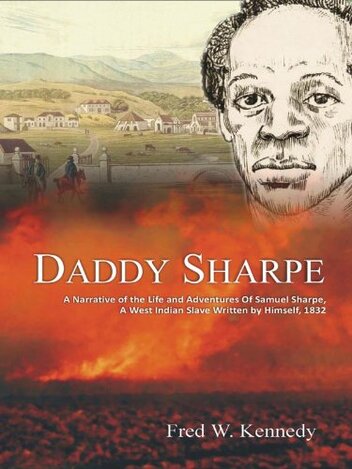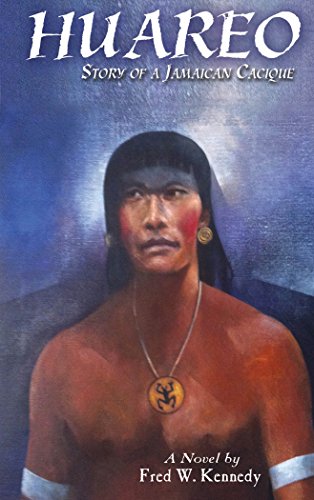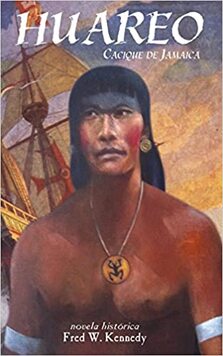Daddy Sharpe: A Narrative of the Life of Samuel Sharpe, A West Indian Slave Written by Himself, 1832Daddy Sharpe is a unique work of Caribbean fiction. It is the result of five years of historical research, details of which have been used to recreate a narrative of the life of one of Jamaica’s National Heroes, Samuel Sharpe. Locked in prison, awaiting a sentence of certain execution, Samuel Sharpe retells the story of his life in the first person narrative, beginning with his boyhood days at Cooper’s Hill in St James and ending with his surrender to the authorities after his defeat in the Great Jamaican Slave Revolt of 1831. These flashbacks are interwoven with present time musings while he is in prison. The reader becomes immediately engaged in the character of the hero and his struggles for spiritual and physical freedom but is also fascinated by the descriptions and historical details of life in Jamaica in the early 19th century.
|
Reviews for Daddy Sharpe
"Fabulous. Full, solid and protean...full of surprise"
-Professor Kamau Braithwaite, Professor of Comparative Literature, New York University
"Fred Kennedy's Daddy Sharpe extensively researched, had mastered the voices of the period and given flesh and blood and spirit to the legend of our national hero. A story of an man and an era brought vividly and convincingly to life in an irresistible read - I could not put it down - this book is not only a valuable addition to out history, but also enriches the body of Caribbean Literature"
-Rachel Manley, Author of Slipstream: A Daughter Remembers; and Drumblair
"An extensively researched work, rich in historical detail and a timely contribution to public awareness of a Jamaican freedom fighter"
-Dr. Swithin Wilmot, Dean of Faculty of Humanities and Education, University of the West Indies, Mona
-Professor Kamau Braithwaite, Professor of Comparative Literature, New York University
"Fred Kennedy's Daddy Sharpe extensively researched, had mastered the voices of the period and given flesh and blood and spirit to the legend of our national hero. A story of an man and an era brought vividly and convincingly to life in an irresistible read - I could not put it down - this book is not only a valuable addition to out history, but also enriches the body of Caribbean Literature"
-Rachel Manley, Author of Slipstream: A Daughter Remembers; and Drumblair
"An extensively researched work, rich in historical detail and a timely contribution to public awareness of a Jamaican freedom fighter"
-Dr. Swithin Wilmot, Dean of Faculty of Humanities and Education, University of the West Indies, Mona
Purchase Your Copy or Leave a Review on Amazon.com below!
Huareo: Story of a Jamaican CaciqueWhen Huareo inherits the role of cacique, he leads the Taino into a prosperous life until he receives word one day from neighbouring Haiti of strangers sailing and laying waste to their villages. Determined not to let the same fate befall his people, Huareo did not welcome or trust the Spanish strangers when they first arrived in Yamaye (Jamaica) in 1494. In 1509, the Spaniards return to the island with the sole purpose of gaining control and the result is something Huareo and his people could never have imagined.Meticulously researched from original sources such as the journals of Diego Mendez and Hernando Colon who were marooned in Jamaica on Columbus's fourth voyage, along with other primary and secondary sources and consultation with historians and archaeologists, Fred Kennedy unearths the history of Jamaica's first ancestral heroes.
|
Purchase Your Copy or Leave a Review on Amazon.com below!
HUAREO: Cacique de Jamaica (Spanish Edition)Cuando Huareo heredó su cacicazgo, dirigió a los taínos con valentía y nobleza buscando la prosperidad para su pueblo. Un día, recibió noticias desde Haití informándole de unos extraños que habían llegado desde el otro lado del océano y asolado a los nativos. Determinado a no dejar que su pueblo sufriera el mismo destino, Huareo no dio la bienvenida ni confió en los extraños cuando arribaron por vez primera a Yamaye (Jamaica) en 1494. En 1509, los españoles regresaron a la isla con el único propósito de dominarla, y el resultado de aquello fue algo que ni Huareo ni su pueblo nunca habrían podido imaginar.
|




